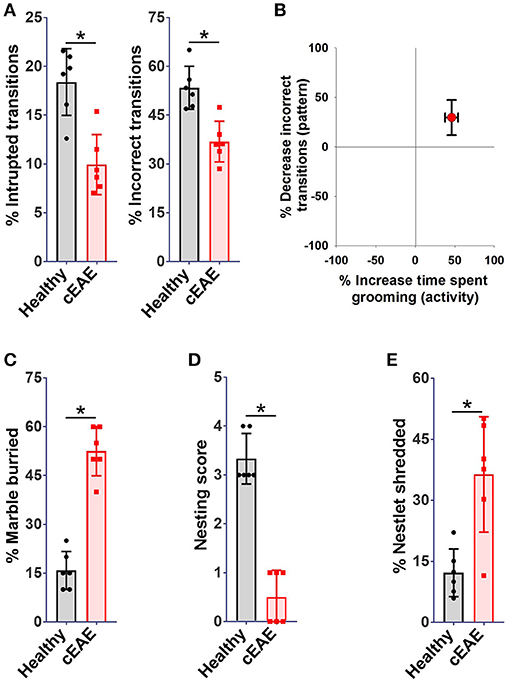A class of cells that defends the body against invaders also triggers obsessive-compulsive behaviour that appears in autoimmune disorders such as multiple sclerosis (MS), a new study from the Indian Institute of Science (IISc) has found.
Autoimmune disorders, where the body’s immune system goes rogue and attacks healthy cells, are difficult to treat. MS, for example, is a debilitating autoimmune disorder that affects over 2 million people worldwide and has no known cure. Patients with these disorders are also known to suffer from illnesses such as depression, anxiety or Obsessive Compulsive Disorder (OCD). However, the relationship between such illnesses and the immune system has not been clear.

An IISc team has now uncovered a direct link. In mice exhibiting MS-like conditions, they found that immune cells called Th17 lymphocytes induce behaviour similar to OCD, such as excessive grooming. Th17 cells were found to infiltrate the mouse brain and likely disrupted nerve circuits involved in controlling obsessive behaviour, the team suggests.
The study, published in Frontiers in Immunology, was carried out by AvadheshaSurolia, Honorary Professor at the Molecular Biophysics Unit, IISc, and his former research associates, Ravi Kant and Shweta Pasi.
“For the first time, we are reporting a likely link between OCD and an important arm of cell-mediated immunity,” says Surolia. “Till now we have looked at neuropsychiatric diseases as purely a neurological problem, ignoring rather completely the immunologic contribution.”
Surolia and his team induced MS-like conditions in mice and looked closely at their behaviour. The diseased mice spent 60-70% more time grooming themselves compared to healthy ones (Movies 1 and 2; Figure 1). They also buried a greater number of glass marbles and shredded more of their bedding to make nests — signs that are suggestive of OCD, which is typified by uncontrollable, repetitive behaviour.
To identify the trigger for such behaviour, Surolia’s team zeroed in on Th17 cells because previous studies have shown that these cells are capable of penetrating the blood-brain barrier, and that they play a key role in the progression of MS. The researchers infused diseased mice with Th17 cells and found that these mice spent more time grooming themselves, burying glass marbles and shredding their bedding. Moreover, brain tissue analysis in these mice showed that large numbers of Th17 cells were found lodged in the brainstem and cortex, which are involved in regulating grooming.
When the mice were given an antidepressant that boosts the uptake of serotonin — an important chemical messenger — their obsessive grooming reduced. This suggests that Th17 cells eventually disrupt serotonin uptake, giving rise to OCD-like symptoms, “although other neurotransmitters such as glutamate may be involved in the initial stages,” says Kant, the lead author.
The team also gave the diseased mice digoxin, a molecule that inhibits Th17 development, and found that the time spent on grooming and the number of grooming bouts were almost halved. Targeting the development of Th17 cells using drugs could therefore offer a novel method to correct such obsessive-compulsive behaviour in autoimmune disorders. “In this way we will be able to treat the root cause of the malady rather than targeting its manifestation and the symptoms,” says Surolia.
REFERENCE: Auto-Reactive Th17-Cells Trigger Obsessive-Compulsive-Disorder Like Behavior in Mice With Experimental Autoimmune Encephalomyelitis, published in Frontiers in Immunology, October 2018.
https://www.frontiersin.org/articles/10.3389/fimmu.2018.02508/full
CONTACT:
Prof.AvadheshaSurolia
Honorary Professor & SERB Distinguished Fellow
Molecular Biophysics Unit, Indian Institute of Science (IISc)
surolia@iisc.ac.in | +91-80-2293 2714
NOTE TO JOURNALISTS:
a) If any of the text in this release is reproduced verbatim, please credit the IISc press release.
b) For any queries about IISc press releases, please write to news@iisc.ac.in or pro@iisc.ac.in.


